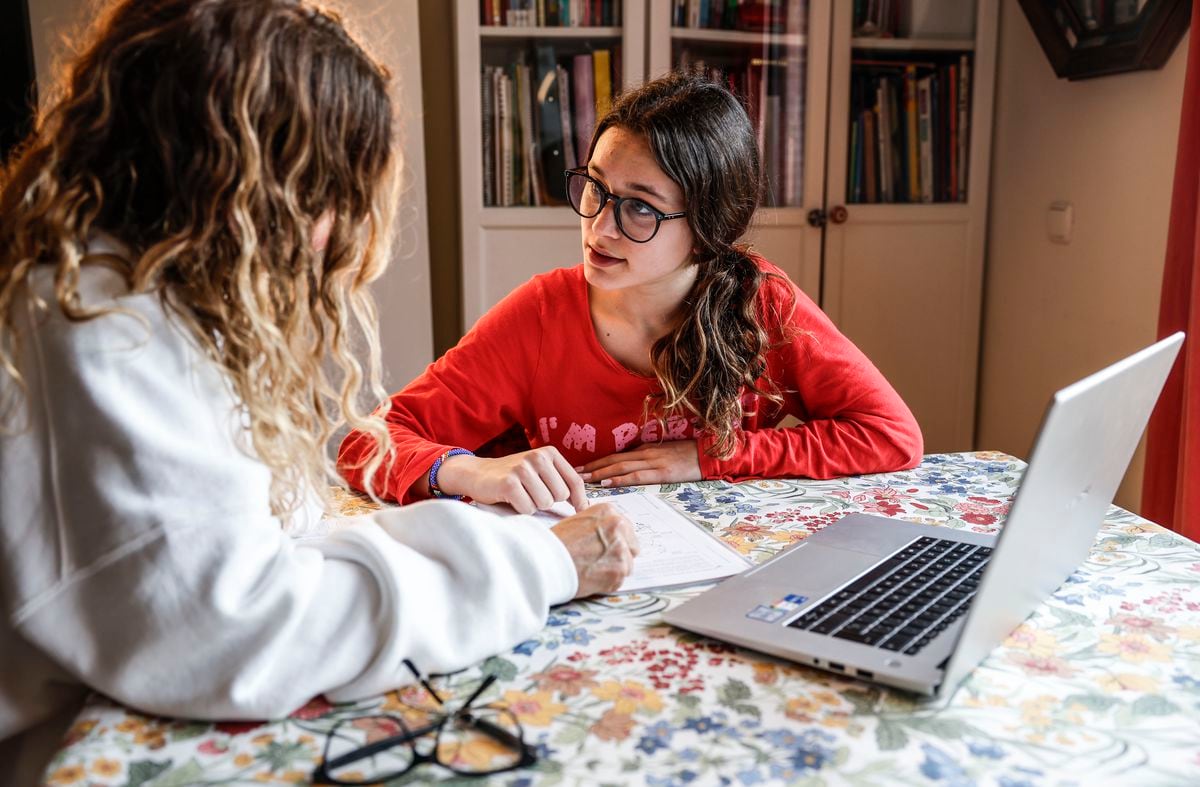Enlarge image
Maths tasks: In arithmetic, fourth graders are on average three months behind compared to 2016
Photo: Erik Tham/Getty Images
More and more fourth graders in Germany are not able to meet the minimum requirements in math and German lessons.
This is the result of the first data from the IQB education trend 2021, which has been collected every five years since 2011.
This is sad news, which he regards with concern, said Hamburg's Education Minister Ties Rabe (SPD) at the presentation of the short report.
In both subjects, the students learned significantly less on average than in the 2016 survey.
In the field of
orthography
, the
Competency decline in a quarter of a school year
When
reading
about a third of a school year
I
'm listening
half a school year
In
mathematics
about a quarter of a school year
In the areas of reading and listening, for which comparable data are already available from 2011, the students are deteriorating for the first time or even more than was the case between the first and second surveys in 2011 and 2016.
In mathematics, too, the learning curve is pointing downwards again, although the increase is not as strong as in reading and writing.
The number of students who do not meet the minimum requirements in the four areas examined has increased significantly by between six and eight percent.
When it comes to
orthography
, a good 30 percent cannot keep up
When it comes to
reading
, almost 19 percent do not meet the minimum standards
When
listening
, it is a good 18 percent
In
mathematics
, the proportion is almost 22 percent
Corona only partly responsible for the decline in skills
The research team led by Petra Stanat, director of the Institute for Quality Development in Education (IQB) at Berlin's Humboldt University, assumes that the corona-related school closures are "partly" responsible for the failure.
The data was collected between April and August 2021, at which time many of the participating fourth graders had only been able to attend school regularly for a few weeks, according to the study.
AreaWhat's behind it?open
In the IQB Education Trend 2021, the Institute for Quality Development in Education (IQB) examined for the third time on behalf of the Conference of Ministers of Education to what extent fourth graders achieve the nationwide educational standards of the Conference of Education Ministers (KMK) in the subjects German and mathematics.
By comparing the results of the IQB country comparison 2011 and the IQB education trend 2016, it is possible to check to what extent the children's level of competence has changed in the last five or ten years.
Expand areaHow was the data collected?
26,844 fourth-grade students in 1,464 primary and special schools from all 16 countries took part in the IQB education trend 2021.
Only children who had been taught in Germany for at least a year were allowed to take part.
Although school operations were still partially restricted due to the pandemic during the survey period between April and August 2021, the tests were able to be carried out at 95 percent of the randomly selected schools.
However, between 2011 and 2016 the performance had deteriorated significantly.
Accordingly, it could “in part be a continuation of these trends that would have taken place even without the pandemic”.
This cannot be answered unequivocally with the available data.
Relationship between parental home and performance continues to increase
In addition to Corona, it can be assumed that the continued increase in the number of schoolchildren with a migration background also had an impact on the level of competence.
Their share of the student body has risen to 38 percent because many children have recently immigrated.
In the case of pupils of this first generation, a connection between a lack of skills and the history of immigration is particularly evident.
In addition, children whose families have a low socio-economic status are particularly disadvantaged - studies have also been confirming this for years.
The researchers write that this connection has again "significantly increased" between the 2016 survey and the current findings.
Karin Prien, President of the Conference of Ministers of Education (KMK) and Minister of Education in Schleswig-Holstein, blamed the pandemic for the increase, since children from migrant families or low socio-economic status could often receive less support at home.
"This once again underlines the importance of school learning for educational justice," said the CDU politician when the short report was presented.
"The students need face-to-face classes at school and long-term measures to catch up on the learning deficits caused by the pandemic." Prien repeated her request to the federal government to increase the financial resources of the Corona catch-up program and to extend it.
Federal Education Minister Bettina Stark-Watzinger (FDP) has so far rejected this.
Like Prien, the scientists also emphasized that not all of the decline in the skills achieved can be attributed to the consequences of the pandemic.
Even in the previous studies, »too many children did not meet the minimum standards.
The education system must take care of these children more systematically,” said scientist Stanat.
According to the report, temporary support such as the Corona catch-up program cannot permanently reduce the proportion of those affected.
Systematically supporting disadvantaged groups of students corresponds to the coalition plan of the governing coalition.
According to this, 4,000 schools nationwide “in a particularly difficult environment” are to be given additional support.
However, this »Starting Chances« program has not yet been launched.
Hamburg's Minister of Education Rabe called for the federal government to develop and implement this quickly together with the states.
"There is considerable need for action," said Prien in view of the test results.
"It will be difficult to catch up," said Scientist Stanat.
She doesn't want to spread pessimism, but it takes a lot of effort for the children to be able to close these glaring gaps in secondary school.
Children appreciate school
The German Teachers' Association, the GEW and the VBE were also concerned about the results and unanimously called for more staff.
"The trend can only be reversed if the dramatic shortage of teachers is finally addressed," said Anja Bensinger-Stolze from GEW.
Further findings from the IQB education trends show that the interest of fourth graders in the subjects German and mathematics has continued to decline.
However, school satisfaction has increased again from a high level.
The pandemic may have made children value their school even more, Stanat concluded.
The children also rated the social cohesion in the class positively.
The data is to be further evaluated by autumn and also examined for differences between the countries.



/cloudfront-eu-central-1.images.arcpublishing.com/prisa/HMWBQUP7WBCINF5UYMYS55EYF4.jpg)





